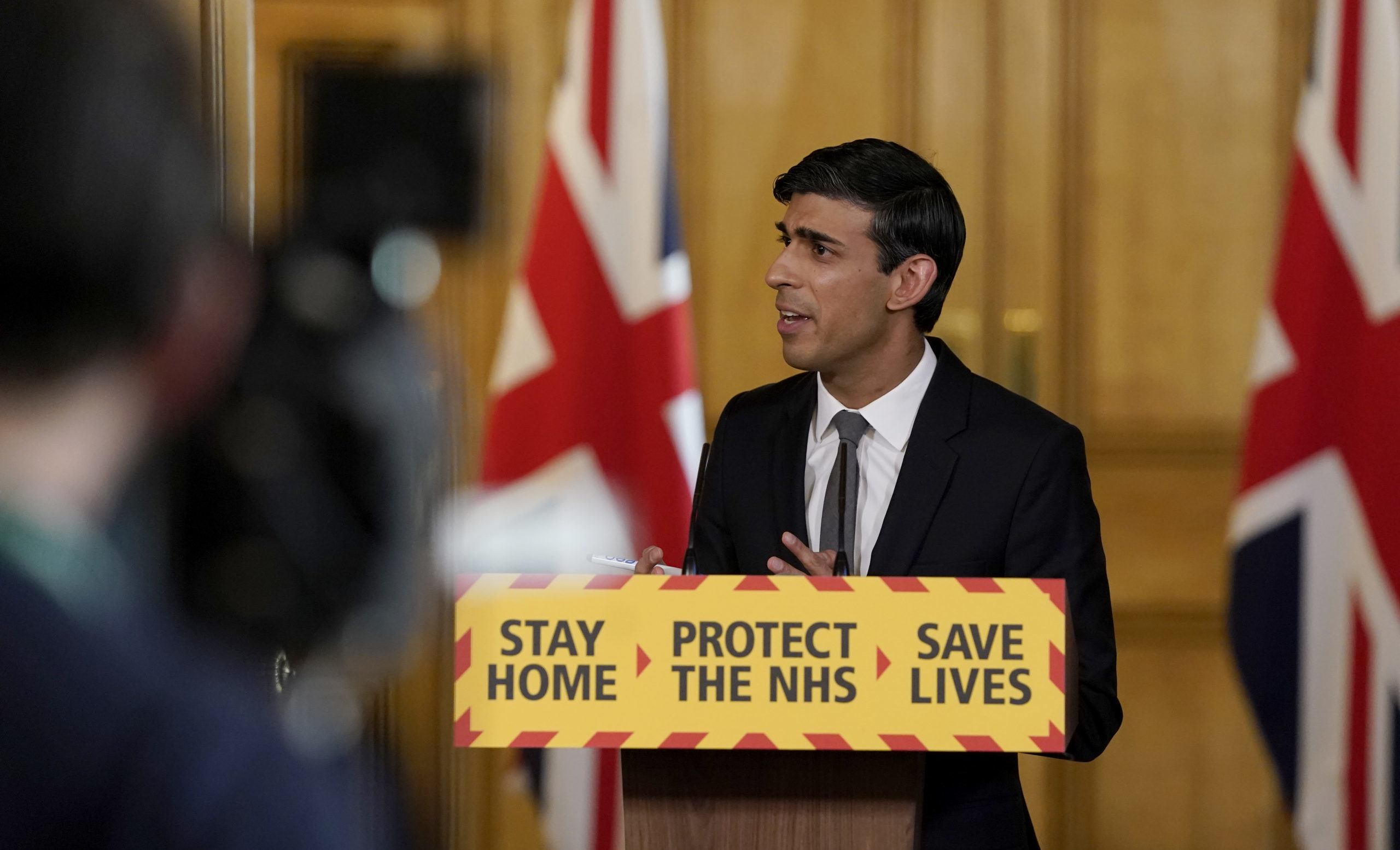Between Cutting the Deficit and Protecting Their Voter Base, the Tories Are Caught in a Bind
by Grace Blakeley
14 May 2020

Many workers breathed a sigh of relief on Tuesday when, under huge pressure from a coordinated campaign by the UK’s major unions, chancellor Rishi Sunak agreed to extend the furlough scheme, with the government contributing 80% of the cost of workers’ wages until October. But just a few hours later, a Treasury leak reported in the Telegraph purported to show that the government was considering a post-coronavirus austerity package to “enhance credibility and boost investor confidence”.
The measures outlined in the document included a public sector pay freeze, ending the pensions triple lock, and raising income tax. Unlike George Osborne’s series of austerity budgets, which focused on spending cuts rather than tax rises, the document suggested that the government would have to raise taxes like income tax, national insurance and VAT to “repair” the public finances.
The option of raising taxes on wealth does not appear to have been considered. This is hardly surprising given the nature of the Conservative voter base. The vast majority of Conservative voters are homeowners; many more hold significant wealth in private pensions pots. The majority of people who vote Conservative are not of working age, making income taxes and national insurance much politically easier for the party to raise than wealth taxes.
But the UK’s ageing population presents the chancellor with a challenge. The government must protect the interests of older voters, especially older homeowners, if it wants to win re-election. However, a significant portion of state spending is already directed towards these voters – whether in the form of health and social care, the state pension, TV licenses and bus passes – and they do not react well to the prospect of these benefits being retracted. One only has to think back to the fiasco of Theresa May’s dementia tax to understand the challenge Sunak faces.
The government would clearly prefer to protect older and wealthier voters from the spending cuts and tax rises that are undoubtedly ahead, but if it tries to impose the full burden of fiscal consolidation on working people, the economy will collapse.
Those workers who have been furloughed, the self-employed facing a loss of work, and those forced into claiming universal credit have already seen a significant fall in their incomes. While mortgage-holders have been granted a payment holiday, private rents remain, as do credit card debts, auto loans, council taxes, utility bills and basic living costs. Raising income tax, national insurance or VAT would impose more pressure on already strained incomes.
Even if state largesse continues longer than expected, it is highly likely that we are headed for a long and deep recession. Many workers will find themselves unemployed by the time the crisis is over. Attempting to raise taxes on those who remain in work will not raise nearly enough revenue to account for the political pain.
Instead, expenditure on social security will inevitably rise. Further cuts to universal credit would not only cause immense suffering, but they would damage the recovery. No chancellor with any sense would consider cuts to NHS or local authorities who pay for social care in the wake of a pandemic. The teachers’ unions, which have forcefully resisted calls for children to return to school, would resist further cuts to education. Most areas of state spending have been cut to the bone already – cutting even further will not be easy.
The bind Sunak and Johnson find themselves in is not new. Ever since the financial crisis, successive Conservative governments have sought to protect the interests of those who benefitted from the pre-crisis boom in order to maintain the Thatcherite political economic settlement that has underpinned decades of stability under neoliberalism. The only issue is that this settlement was based on a huge debt-fuelled asset bubble in finance and real estate, which burst in 2008.
Government policy since the crisis has been based on an attempt to square this circle. The combination of loose monetary policy and tight fiscal policy is tailor-made to benefit the wealthy and punish workers. Extraordinary monetary interventions like quantitative easing have increased asset prices, protecting the interests of British capital and wealthy voters, while austerity has largely hurt the poorest in society – those whose interests the Conservative party has little need to consider.
But this same policy arrangement has backed the Conservatives into a corner. By protecting the interests of older homeowners, and punishing younger renters, the Tories have radicalised millennials. As a result, they cannot build a new electoral coalition – they must repair the old one. Rentier interests will demand spending cuts, whereas some big businesses will demand more investment. Wealthy older voters will refuse to accept tax increases, but less wealthy older voters will refuse to accept cuts to state support.
Managing these divergent interests without sending our fragile, debt-laden economy into a tailspin is the challenge the Conservative party will face over the coming years. Sunak will probably look back on the ease with which Osborne was able to make cuts with envy.
Grace Blakeley is an economics commentator and author of Stolen: How to Save the World from Financialisation.